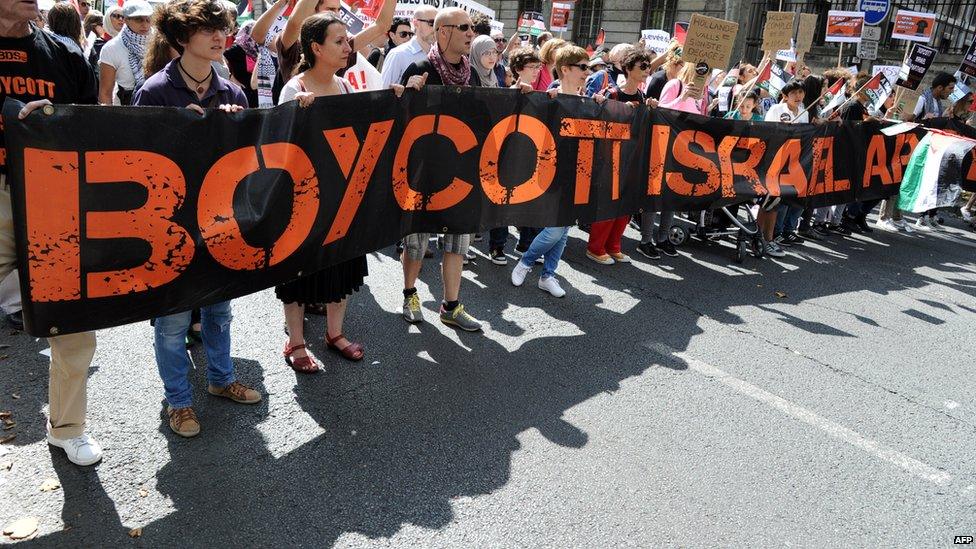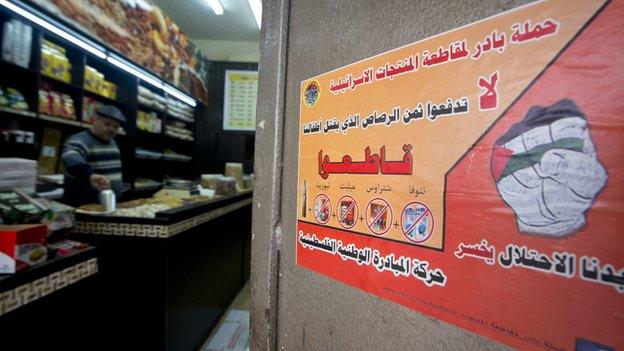Councils warned of penalties over political boycotts
- Published

Councils have been warned against supporting boycott protests like this one in Paris
Councils are being warned of "severe penalties" if they impose political boycotts on products from overseas.
New government guidance suggests boycotts could breach an existing World Trade Organization agreement and weaken community relationships.
Cabinet Office Minister Matt Hancock will make a speech later, warning that such "divisive" action can also undermine national security.
Labour said the Conservatives were attacking local democracy.
But a government source said foreign policy was a matter for national government, not local councils.
'Poisoning debate'
The guidance will specify that locally imposed boycotts by public bodies - including councils - are "inappropriate" unless formal legal sanctions or embargoes have been put in place by the government.
It will warn such action risks breaching a World Trade Organization agreement signed by both the EU and Israel, which requires equal treatment for suppliers from all signatory nations.
The Cabinet Office said town hall boycotts could also "undermine good community relations, poisoning and polarising debate, weakening integration and fuelling anti-Semitism", as well as hindering Britain's export trade and harming international relationships.
Mr Hancock is making the announcement in Israel, which has often been the subject of boycotts in the past.
He is expected to say the guidelines, and new rules on investing pensions funds, will "help prevent damaging and counter-productive local foreign policies undermining our national security".
A spokesman for Labour leader Jeremy Corbyn said the ban would have outlawed council action against apartheid South Africa.
He said: "People have the right to elect local representatives able to make decisions free of central government political control. That includes withdrawal of investments or procurement on ethical and human rights grounds."
- Published3 October 2015

- Published24 August 2015
